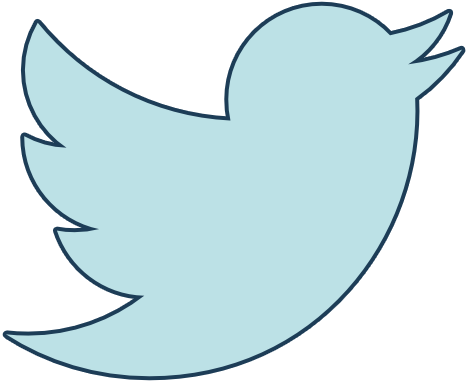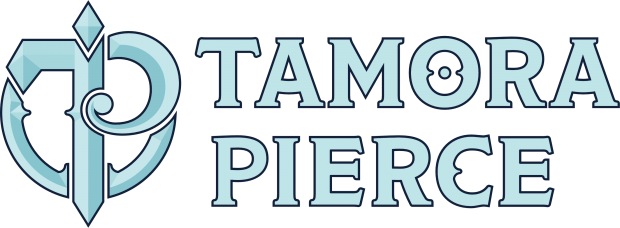Young Reader (Ages 8-12) Reading List Archive (2005-2015)
Continue on for Tammy’s reading recommendations from her 2005-2015 lists! These are the books recommended for young readers (ages 8-12).
Mainstream | Sci-Fi & Fantasy | Miscellaneous
Mainstream
- Olivia Bennett – The Allegra Biscotti Collection (2010), Who What Wear!: The Allegra Biscotti Collection (2011). So what if they’re silly?! They’re fun and they’re about fashion!
- Carol Ryrie Brink – Caddie Woodlawn (1935).
- Nick Bruel – Bad Kitty Gets a Bath (2008).
- Chris Crutcher – Staying Fat for Sarah Byrnes (1993), Whale Talk (2001), Deadline (2007). Many of his books have to do with sports.
- Karen Cushman – Catherine, Called Birdy (1994) and more.
- Esther Forbes – Johnny Tremain (1943).
- Jack Gantos – Joey Pigza Swallowed the Key (1998) and the rest of the Joey Pigza series.
- Gail Giles – Shattering Glass (2002) and more.
- Dan Gutman – Honus & Me (1997) and more.
- Carl Hiaasen – Hoot (2002), Flush (2005).
- Jack Higgins & Justin Richards – Sure Fire (2006).
- Will Hobbs – Downriver (1991), River Thunder (1997), The Maze (1998), and more.
- Deborah & Thomas Hoobler – The Ghost in the Tokaido Inn (1999).
- Anthony Horowitz – Stormbreaker (2000) and the rest of the Alex Rider series.
- Jeanette Ingold – The Big Burn (2002), Hitch (2005).
- Brian Jacques – Castaways of the Flying Dutchman (2001), The Angel’s Command (2003), Voyage of Slaves (2006).
- Gordon Korman – Son of Interflux (1986), No More Dead Dogs (2002), Son of the Mob (2002), The Contest (2002) and the rest of the Everest series.
- Iain Lawrence – The Wreckers (1998).
- David Lubar – Dunk (2002), Sleeping Freshmen Never Lie (2005), Curse of the Campfire Weenies (2007), and more.
- Eloise Jarvis McGraw – Mara, Daughter of the Nile (1953) and more.
- Ben Mikaelsen – Petey (1998), Touching Spirit Bear (2001), Red Midnight (2002), and more.
- Gary Paulsen – Hatchet (1987) and more.
- Rodman Philbrick – Freak the Mighty (1993), Max the Mighty (1998).
- Howard Pyle – The Merry Adventures of Robin Hood (1883), The Story of King Arthur and His Knights (1903).
- Judson Roberts – Viking Warrior (2006) and the rest of the Strongbow Saga.
- Seuss – Horton Hatches the Egg (1940), Horton Hears a Who! (1954).
- Elizabeth George Speare – The Witch of Blackbird Pond (1958).
- Frances Temple – The Ramsay Scallop (1994).
- Terry Trueman – Inside Out (2003), Cruise Control (2004) and more.
- Mark Twain – The Adventures of Tom Sawyer (1876).
- Vivian Vande Velde– Smart Dog (1998).
Sci-Fi & Fantasy
- Lloyd Alexander– The Book of Three (1964) and the rest of the Chronicles of Prydain series.
- David Almond – Kit’s Wilderness (1999).
- Jodi Lynn Anderson – May Bird Among the Stars (2006).
- M. T. Anderson – Feed (2002).
- Constance Ash (Editor) – Not of Woman Born (1999). Exploration of body and genetic manipulation, cloning, artificial intelligence, and creation of androids and robots.
- Isaac Asimov – I, Robot (1950) features somewhat dated technology and covers themes of overpopulation and human conflict with intelligent machines, androids (robots that look human). Caves of Steel (1954), The Naked Sun (1956), The Robots of Dawn (1983), Robots and Empire (1985).
- Natalie Babbitt – Tuck Everlasting (1975) has themes of life extension and fantasy-like touches, while asking the question: “Is immortality good?”
- Clive Barker – The Thief of Always (1992), Abarat (2002).
- Dave Barry & Ridley Pearson – Peter and the Starcatchers (2004) and its sequels in the series.
- Nina Bawden – Off the Road (1998).
- Lara Bergen – X-Men (2000) is the novelization of the popular 2000 movie, with a light view of mutation and anti-mutant bias.
- Ray Bradbury – The Illustrated Man (1951) includes the story “The Veldt,” which poses the question: “What kinds of children are created by electronic babysitters?” Fahrenheit 451 (1953) although it contains dated technology, the book covers totalitarian governments, the loss of the printed book, and obsession with electronic media. Both books are genre classics.
- Joseph Bruchac – Skeleton Man (2001) and The Return of the Skeleton Man (2006), Hidden Roots (2004), and many more.
- Edgar Rice Burroughs – At the Earth’s Core (1914), Beyond Thirty/The Lost Continent (1916), A Princess of Mars (1917) and its sequels in the Barsoom series, and more.
- Orson Scott Card – Ender’s Game (1985) and the rest of the Ender Quintet, Seventh Son (1987) and the rest of the Tales of Alvin Maker.
- Isobelle Carmody– Obernewtyn (1987) and its sequels are about a future with environmental collapse, toxic zones, and genetic mutations in a population which returns to rural values and totalitarian authority.
- Brian Caswell – Deucalion (1995).
- David Clement-Davies – The Telling Pool (2005).
- Eoin Colfer – Artemis Fowl (2001) and the rest of the series, The Supernaturalist (2004).
- Barbara Cohen – Unicorns in the Rain (1980).
- Suzanne Collins – Gregor the Overlander (2003) and its sequels in the Underland Chronicles.
- D. M. Cornish – Foundling (2006), Lamplighter (2007).
- Bruce Coville– The Monster’s Ring (1982) and the rest of the Magic Shop series, My Teacher is an Alien (1989) and sequels, Goblins in the Castle (1992), Space Brat (1992) and sequels, I Left My Sneakers in Dimension X (1994), Into the Land of the Unicorns (1994) and the other Unicorn Chronicles books, Oddly Enough (1994) and sequels, The Monsters of Morley Manor (2001), The Dragon of Doom (2003) and others in the Moongobble and Me series, Thor’s Wedding Day (2005), Always October (2012).
- Bruce Coville (Editor) – The Unicorn Treasury (1988), Bruce Coville’s Book of Ghosts (1994), Bruce Coville’s Book of Magic (1996), A Glory of Unicorns (1998), Bruce Coville’s Shapeshifters (1999), Bruce Coville’s UFOs (2000), Half-Human (2001).
- Roald Dahl– James and the Giant Peach (1961), Matilda (1988).
- Paula Danziger– This Place Has No Atmosphere (1986) is a fun, approachable book that raises issues related to future Earth life, including school, the homes available, and dwindling resources.
- Joseph Delaney – Revenge of the Witch/The Spook’s Apprentice (2004) and the rest of the Last Apprentice/Wardstone Chronicles series.
- Peter Dickinson– Eva (1988) is an exploration of animal experimentation, social collapse, and dwindling resources. The Lion Tamer’s Daughter and Other Stories (1997).
- Debra Doyle & James D. Macdonald – Knight’s Wyrd (1992). Groogleman (1996) is an exploration of world created by social collapse and waves of epidemic disease.
- Tobias Druitt – Corydon and the Island of Monsters (2005), Corydon and the Fall of Atlantis (2006), Corydon and the Siege of Troy (2007).
- Diane Duane– So You Want to Be a Wizard (1983) and the rest of the Young Wizards series.
- Dave Duncan – Sir Stalwart (1999), The Crooked House (2000), Silvercloak (2001).
- Edward Eager – Half Magic (1954), Knight’s Castle (1956), The Time Garden (1958).
- Nancy Farmer – The Eye, the Eye, and the Arm (1994), set in near-future Africa with some fantasy elements; explores overpopulation and dwindling resources, difference between haves and have-nots. The House of the Scorpion (2002), The Sea of Trolls (2004), The Land of the Silver Apples (2007).
- John Flanagan – The Ruins of Gorlan (2004) and the rest of the Ranger’s Apprentice series.
- Susan Fletcher – Dragon’s Milk (1989) and the Dragon Chronicles series.
- Cornelia Funke – Dragon Rider (1997), The Thief Lord (2000), Inkheart (2003).
- Margaret Peterson Haddix– Among the Hidden (1998) and the rest of the Shadow Children series covers totalitarian governments, regulations on how many children a family can have (and the penalties), and the lives of hidden excess children. Turnabout (2000) is a near-future exploration of gene therapy, life extension and age reversal, and includes medical experimentation without checks and balances, which is timely with discoveries of genetic causes of aging, and possible ways to combat it.
- Shannon Hale – The Goose Girl (2003) and the Books of Bayern series, Princess Academy (2005), Book of a Thousand Days (2007), Rapunzel’s Revenge (2008), Calamity Jack (2009).
- Robert A. Heinlein – Space Cadet (1948), Red Planet (1949), Have Space Suit—Will Travel (1958), and more. Between Planets (1951) explores an over-populated Earth vs. the rights of colony planets, and includes themes of future civil liberties, totalitarian governments, and intelligence. The Star Beast (1954) questions how to define intelligence and humanity when what is intelligent and “people” may not look like human (and it’s also handled humorously). Tunnel in the Sky (1955) is about how population explosion forces Earth-dwellers to deal with dwindling resources, and the growing pressure for space exploration/colonization. The computer technology in RAH’s books is dated, but other issues are still timely. All of these books are considered genre classics.
- Jason Hightman – The Saint of Dragons (2001), Samurai (2006).
- Mary Hoffman – City of Masks (2002) and the rest of the Stravaganza series.
- Greg Holch – The Things With Wings (1998).
- H. M. Hoover– The Winds of Mars (1995), which explores good government, good leadership, the widening gap between haves and have-nots, and leadership vs. dictatorship.
- Monica Hughes– The Keeper of the Isis Light (1980), covering genetic modification and physical adaptation to fit different conditions, and asks the question: “What is a human being?”
- Diana Wynne Jones – Charmed Life (1977) and the rest of the Chrestomanci series, Archer’s Goon (1984), Howl’s Moving Castle (1986), Dark Lord of Derkholm (1998) and sequel Year of the Griffin (2000), The Game (2007), and many more!
- Marilyn Kaye– Replica is a suspense series for young readers that deals with genetic manipulation and cloning.
- P. B. Kerr – The Akhenaten Adventure (2004) and the rest of the Children of the Lamp series.
- Annette Curtis Klause – Alien Secrets (1993).
- R. L. LaFevers – Flight of the Phoenix (2009).
- Ingrid Law – Savvy (2008).
- Ursula K. Le Guin – A Wizard of Earthsea (1968) and the rest of the Earthsea Cycle.
- Mallory Loehr – Water Wishes (1999) and the rest of the Magic Elements Quartet.
- Lois Lowry– The Giver (1993) although it has weak science, the book features discussion of population manipulation through trait selection and infanticide.
- David Lubar – Hidden Talents (1999) and its sequel True Talents (2007), Wizards of the Game (2003), Flip (2003), and many more!
- Lisa Mantchev – Eyes Like Stars (2009), Perchance to Dream (2010), So Silver Bright (2011).
- John Marsden – Tomorrow, When the War Began (1993) and sequels.
- Anne McCaffrey– The Ship Who Sang (1969) and others in the series are about the future use of challenged children to supply brains to power spaceships and provide central guidance for cities and space stations. Also includes physical manipulation, brainwashing, and drug use.
- Geraldine McCaughrean – Theseus (1997), Jason and the Golden Fleece (1998), Odysseus (2003), Peter Pan in Scarlet (2006).
- Patricia McKillip – The Riddle-Master trilogy: The Riddle-Master of Hed (1976), Heir of Sea and Fire (1977), Harpist in the Wind (1979).
- Cliff McNish – The Silver Child (2003), Silver City (2004), Silver World (2005), Breathe: A Ghost Story (2006).
- Patricia Miles – The Gods in Winter (1978).
- Gerald Morris – The Squire’s Tale (1998), The Savage Damsel and the Dwarf (2000), The Ballad of Sir Dinadan (2003), and everything else.
- E. Nesbit – Five Children and It (1902), The Phoenix and the Carpet (1904), and more.
- Jenny Nimmo – Midnight for Charlie Bone (2002) and sequels.
- Garth Nix– Shade’s Children (1997), which features aliens controlling humans and addresses organ harvests and machine intelligences that are independent and have their own agendas. Sabriel (1995) and the Abhorsen series, The Fall (2000) and sequels, Mister Monday (2003) and sequels in the Keys to the Kingdom series, Troubletwisters (2011) and sequels.
- Robert C. O’Brien– Z for Zachariah (1974), about post-nuclear collapse and survival, and the nature of courage.
- Kenneth Oppel – Airborn (2004), Skybreaker (2005).
- George Orwell – 1984 (1949).
- Rodman Philbrick– The Last Book in the Universe (2002), about virtual reality as a drug addiction, genetic modification, overpopulation, dwindling resources, haves vs. have-nots, environmental collapse, and the loss of print media.
- Daniel Pinkwater – Lizard Music (1976).
- Terry Pratchett– The Amazing Maurice and His Educated Rodents (2001), The Wee Free Men (2003) and sequels in the Tiffany Aching series, Thud! (2005).
- Sarah Prineas– The Magic Thief (2008) and sequels.
- Philip Pullman – Count Karlstein (1982), I Was a Rat! (1999).
- Ayn Rand– Anthem (1938), about a totalitarian government, socialism as opposed to individual thinking/liberties, and media manipulation.
- Douglas Rees – Vampire High (2003).
- Rick Riordan– The Lightning Thief (2005) and others in the Percy Jackson and the Olympians series.
- Willo Davis Roberts – The Girl with the Silver Eyes (1980).
- Emily Rodda (Jennifer Rowe) – Rowan of Rin (1993) and sequels.
- Lois Ruby – The Secret of Laurel Oaks (2008).
- Marie Rutkoski– The Cabinet of Wonders (2008), The Celestial Globe (2010), The Jewel of the Kalderash (2011).
- Michael Scott – The Alchemyst: The Secrets of the Immortal Nicholas Flamel (2007).
- Marcus Sedgwick – My Swordhand Is Singing (2006).
- Darren Shan – Cirque du Freak: A Living Nightmare (2000) and sequels.
- Josepha Sherman – Merlin’s Kin (1998).
- Neal Shusterman – Unwind (2007).
- Nevil Shute– On the Beach (1957), about survivors of a nuclear war awaiting the spread of planet-altering radiation.
- William Sleator – House of Stairs (1974), Interstellar Pig (1984) and its sequel Parasite Pig (2002), Singularity (1985), and more.
- Zilpha Keatley Snyder – Black and Blue Magic (1967).
- Nancy Springer (Editor) – Ribbiting Tales: Original Stories About Frogs (2000).
- Betsy Sterman & Samuel Sterman – Backyard Dragon (1993).
- Paul Stewart & Chris Riddell – Beyond the Deepwoods (1998) and sequels.
- Jonathan Stroud – The Amulet of Samarkand (2003) and sequels.
- J. R. R. Tolkien – The Hobbit (1937), The Fellowship of the Ring (1954), The Two Towers (1954), The Return of the King (1955).
- Megan Whalen Turner – The Thief (1996), The Queen of Attolia (2000), The King of Attolia (2006).
- Vivian Vande Velde– Dragon’s Bait (1992), Curses, Inc. and Other Stories (1996), There’s a Dead Person Following My Sister Around (1999), Never Trust a Dead Man (1999), Wizard at Work (2003), and many more.
- Jules Verne – From the Earth to the Moon (1865), 20,000 Leagues Under the Sea (1870).
- Holly Webb – Dog Magic (2008).
- H. G. Wells – The Time Machine (1895), The War of the Worlds (1898).
- Scott Westerfeld– Uglies (2005) and sequels, Leviathan (2009) and sequels, and more.
- T. H. White– The Sword in the Stone (1938), The Once and Future King (1958).
- N. D. Wilson – Leepike Ridge (2007).
- Patricia Wrede– Dealing with Dragons (1990) and sequels.
- Rick Yancey – The Extraordinary Adventures of Alfred Kropp (2005).
- Jane Yolen– Dragon’s Blood (1982) and sequels, Wizard’s Hall (1991).
- Markus Zusak – I Am the Messenger/The Messenger (2002), The Book Thief (2005).
Miscellaneous (Non-fiction, Graphic Novels, Poetry)
Non-fiction:
- Jean Craighead George – The Tarantula in My Purse: And 172 Other Wild Pets (1996).
Graphic Novels:
- Frank Cammuso – Knights of the Lunch Table #3: The Battling Bands (2011) and others in the Knights of the Lunch Table series.
- Jennifer L. Holm & Matthew Holm – Babymouse #2: Our Hero (2005) and others in the Babymouse series.






Archive: Reading Lists, Reading Lists